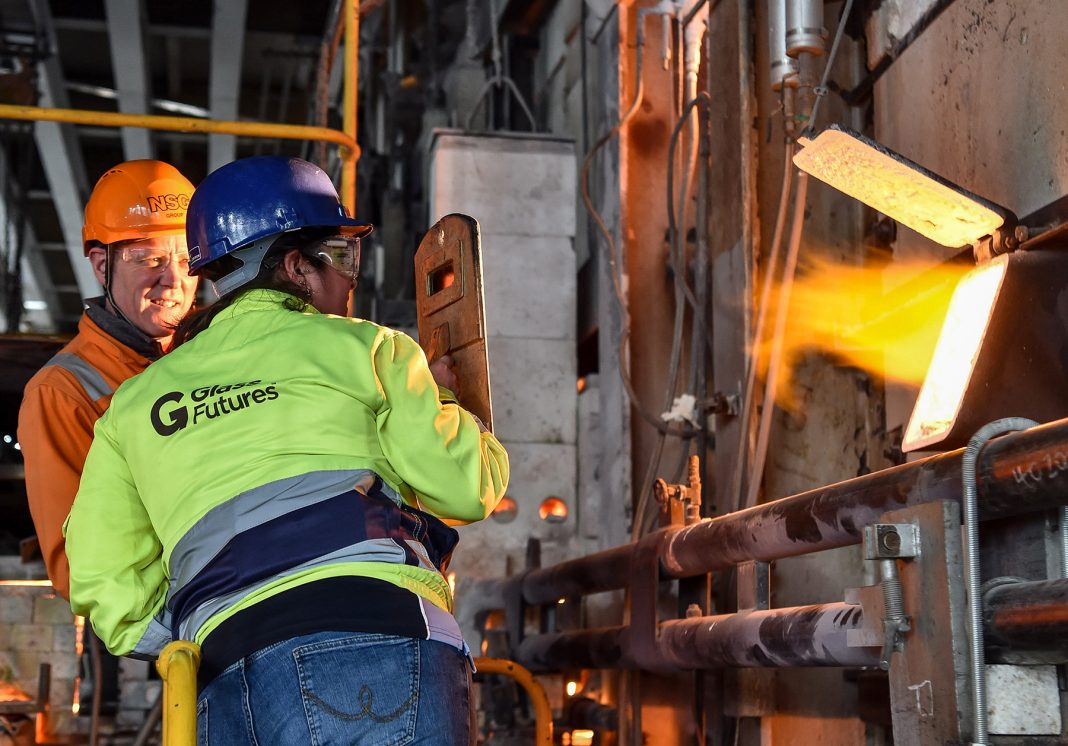Pilkington is claiming another world first towards net-zero glass production after a trial run of its furnace powered entirely by biofuel.
The four-day run produced 165,000sqft of what the company says is the lowest-carbon float glass ever made, creating only a fifth of the CO2 expected from a conventional natural gas firing.
It is the company’s second breakthrough in low-CO2 glass production after a similar trial using hydrogen power at its St Helen’s site last year https://www.the-glazine.com/?p=3883 .
The latest trial forms part of a £7.1 million project led by industry research and technology organisation Glass Futures, working under the Department for Business, Energy and Industrial Strategy’s Energy Innovation Programme. It aims to demonstrate that the furnace could run safely at full production on the low-carbon fuel without impacting product quality.
Pilkington UK managing director Neil Syder said: “Our world-first trial with Glass Futures proves how biofuel presents a realistic low-carbon alternative to natural gas, which will allow manufacturers to cut thousands of tonnes of CO2 from their production years ahead of alternative zero-carbon options becoming more readily available.
“Last Summer, we became the first glass manufacturer in the world to fire a furnace with hydrogen, which represented a major step forward towards our future as a net-zero industry. But a significant body of work remains before hydrogen and electrification become feasible alternatives to natural gas for glassmakers, making biofuels an important transitionary fuel.
“The success of this trial is also important for the many sectors that rely on glass as an integral supply chain material. We’re now far closer to glass with less embodied carbon being accessible, which will help developers to create a more sustainable built environment.”
Aston Fuller, General Manager at Glass Futures, added: “It is great to see a technology demonstrated on a container furnace one year ago be adopted onto a float line just one year later. Biofuel represents a real short-term opportunity for the UK glass sector to lead the way in sustainability among energy intensive industries, and this trial is another great example of what can be achieved when industry, academia and public partners work together to tackle the major challenges and opportunities of the future.”
Pilkington UK fired hydrogen on its glass furnace in August 2021 in a world-first trial as part of the HyNet Industrial Fuel Switching project to decarbonise industrial processes across the North West of England.
2022 marks 70 years since Sir Alastair Pilkington first began working on the float glass process from the St Helens site. The United Nations is also recognising 2022 as the International Year of Glass, celebrating the past, present and future of the material.












